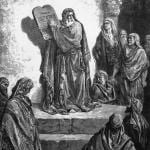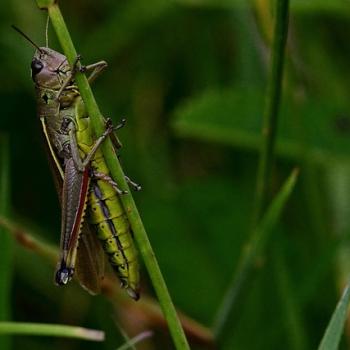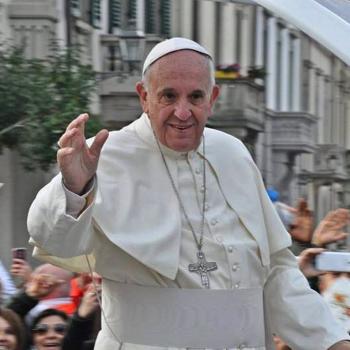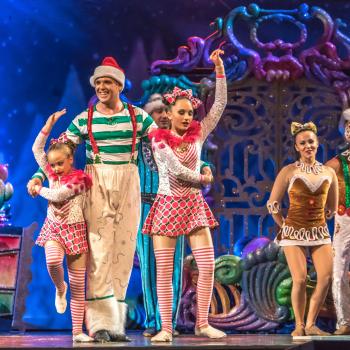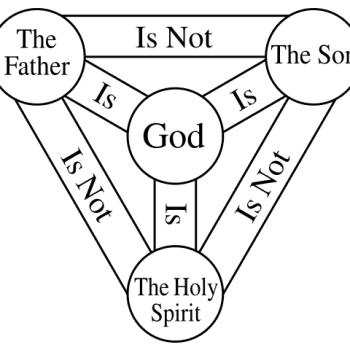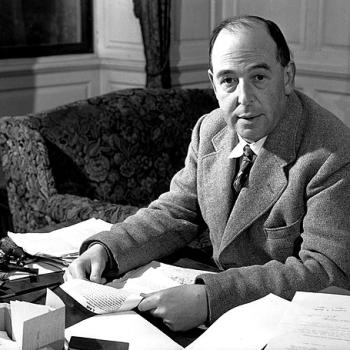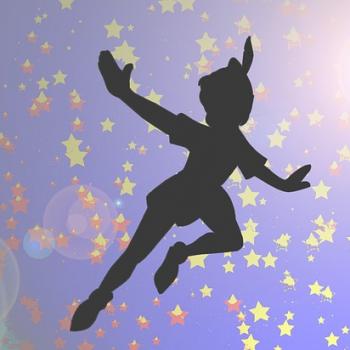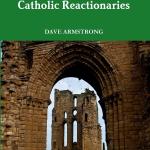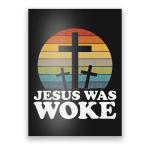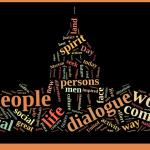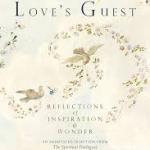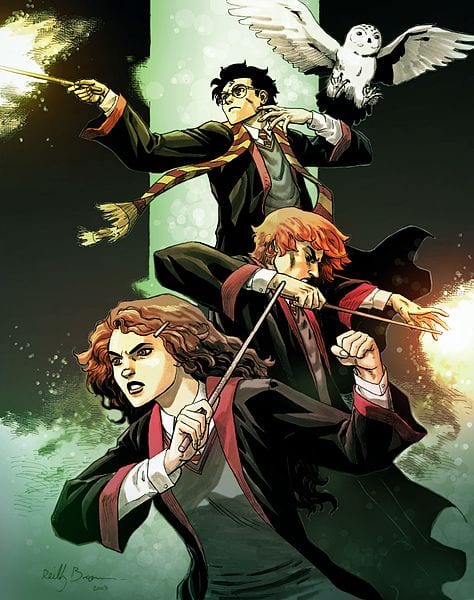
On my Romantic and Imaginative Theology web page I have many Harry Potter links. The articles / books / audio files are from all perspectives: some favor the series, some oppose it, and some offer both sides, or ambiguous or uncertain or neutral opinion. Almost all of the links are from a Christian perspective (Catholic, Protestant, and Orthodox alike; for example, John Granger: a leading proponent, is Orthodox).
Ultimately, then, I am not “against” Harry Potter, yet I would strongly urge a sharp watchful eye for potential spiritual danger, due to the nature of the subject matter, in proportion to the extent that one is prone to following non-Christian modes of thought and behavior, contra proper Christian boundaries and mature spiritual discernment. This was the position I laid out in detail in my article, Harry Potter: Literary Magic or Magical Mystery Sewer? [7-19-05 and 10-28-10].
Here are further reflections of mine and of some friends of mine from an extremely lengthy thread dated February 2018. The whole thing remains online for masochists and “completists.” But if you’re interested in our take as huge fantasy and romanticism fans, this can be your “Cliff Notes version.”
*****
Is God against fairy tales and The Chronicles of Narnia and Lord of the Rings and Star Wars and all the superhero comics and movies, and The Wizard of Oz, too? People read the Bible and need exorcisms because they read it wrongly. I’ve been through those arguments a hundred times. I want a simple answer to my question. All of these movies have spells or other occultic / sorcerer-type elements in them.
There are spells in Lord of the Rings [link one / link two], and in The Chronicles of Narnia and in fairy tales.
***
So you conceded that these other works also contain descriptions of witchcraft / spells? But somehow they are okay and Harry Potter ain’t? Or have you ditched them all now, too?
***
I warn against it, too, if one doesn’t know their Christian theology. My argument remains somewhat of a middle position (as is often the case with me) inasmuch as I warn folks to avoid it if they aren’t confident in their Christian positions. So I don’t deny that there is possible danger.
But I am not totally against it, because danger is present in everything, even totally good things like the Bible. Nothing has been more abused and distorted than Scripture: from the heretics who try to enlist it for their cause.
***
There are reasoned arguments to be made against Harry Potter. I’ve collected the links. I thoroughly disagree with them, but they are respectable efforts, and of course in good faith with good intentions.
***
I would tend to listen to an exorcist, too, but just being an exorcist doesn’t make them all-knowing and infallible. They need to make the arguments just like anyone else.
***
Patrick Palmer Hmm … it certainly is a topic of controversy in the Christian world … fierce arguments pro and con. I consider myself pro Harry Potter. J.K. Rowling said in an interview (held at an early stage of writing the series) that she was reluctant to talk about her own religious viewpoint, lest the intelligent reader guesses how the series will end. Certainly by the last book, her Christian viewpoint became obvious — I believe that an author’s religious viewpoint cannot help coming out in his/her work.
I would go so far to say, at least, it’s miles better than Philip Pullman (an atheist who made no secret of his hatred of Narnia) or the House of Night series (I do not know what the authors’ religious viewpoint would be, but there is a strong scent of Wicca therein.)
***
Paul Hoffer The “magic” that is used in Harry Potter series does not rely upon invocations to Satan, demons, gods or things like that. Their powers are basically like powers that one sees in comics about superheroes. They are inherent to the person. Rowling dress up her characters in the trappings of magic to distinguish her from a superman or an X-man.
And I provided documentation that a woman did not burn her house down using a spell, that the “names” of demons supposedly in HP are not, and that Rowling criticized Wiccans stating that the magic depicted in HP is not based on their kind of magic.
I do have a problem about quoting “former” witches. They all cite that HP, LOTR, are Satanic and most of them also claim the Catholic Church is Satanic as well.
Given Ms. Guerra prior experiences with the occult, I can understand why she would urge people to stay away from the Harry Potter books. Discernment about any fantasy book is a parental obligation and educating one’s children so they do not explore or become interested in the occult requires us to take an active interest in our children’s lives.
One quibble about the article you cite to referencing CCC 2117. It does not state that reading about magic is wrong. It is the practice of magic that goes against the virtue of religion. It is the taming of occult powers, putting them at one’s service, AND having supernatural power over others that is wrong. Thus, it is intent, an act of will, coupled with an overt action that is wrong. Reading a story as a work of fiction or as an entertainment is not contrary to faith, but if I were reading the book so I could learn how to be a real witch or wizard or to become adept in the occult would be a bit more problematic.
Personally, I don’t regard the stuff in the books to be “satanic” anymore than Narnia, LOTR, comic books, stories about Greek gods or Norse legends, etc. Some might see something wrong about them, others might not. The essential thing to each of us discernment. If a person finds something in a piece of literature that is objectionable or dangerous to their faith, then they shouldn’t read it nor should we force someone to.
Other than being mildly entertaining children’s literature that contains big plot holes, contrived scenarios and obvious endings (for example: Harry Potter should have married Luna, not Ginerva), Harry Potter has not tempted me to invoke Cthulu, Satan, demon spirits, put a curse on anyone, attempt to turn my pots and pans into gold or even divine the next weeks Mega-million numbers. Reading them has made me a bit of a critic, not a sorcerer. As with other literature that my children read, I made sure to read it first before they did to make sure I could answer questions about magic, what is proper and improper, and making sure they didn’t go down the path that you indicate that others have and explore the occult. As I said, it is a matter of discernment or an exercise of prudential judgment. Just because I do not believe that Harry Potter books reflect a Satanic or improper form of magic does not mean that I did not first discern that before I allowed my children to read them.
The names of “Nicholas Flamel,” “Azkaban”, “Circe”, “Draco”, “Erised”, “Hermes”, and “Slytherin that are mentioned in the book are all characters taken from other pieces of literature. For the most part, they are not the names of actual demons. Nicholas Flamel was actually a famous Medieval French Catholic author in the early 15th century who later writers in the 18th and 19th century attributed to him demonic and alchemy powers. Of course, this is utter nonsense as he had inscribed on his house this prayer: “We, ploughmen and women living at the porch of this house, built in 1407, are requested to say every day an ‘Our Father’ and an ‘Ave Maria’ praying God that His grace forgive poor and dead sinners.” Circe, of course, was a Greek witch in Homer’s Odyssey. Azkaban is a combination of Alcatraz and Abaddon (who is a real demon in the Bible) but literally a pit or depths of hell which is pretty descriptive of the kind of place it was in the books. Draco is a constellation and also Latin for dragon. Draco was also a mythic Athenian bad-boy who made up very strict laws, hence Draconian. Hermes is the Greek Messenger God, Erised is desire spelled backwards. I could find nothing on Slytherin as any kind of name. I suspect that it comes from slither, which is what snakes do. Now, the Serpent, is another name for Satan, so I suppose one could argue that it where she got it from. She does borrow heavily from Greek, Scottish and Irish mythology for her characters and critters found in the books. .
Father seems to dismiss Ms. Rowling’s assertions that she is a Christian, but she has never claimed to be anything but a Christian. In fact, she has specifically criticized Wiccans for trying to say Harry Potter is a Druid or a Wiccan claiming that the magic practiced by the characters in her books is very different sort of magic from the kind they practice.
The bottom line is discernment and making sure you know what your kids are reading so you can address potential issues and problematic themes. St. Benedict in his rule says much the same thing by forbidding monks from reading certain books in the Bible until they are better formed spiritually.
***
Judith McRae Good heavens. There are no actual spells in “Harry Potter”; it’s all just dog Latin. If an exorcist is actually saying there are spells (rather than perhaps saying “IF there are spells …” ) then I’d want to examine his credentials – he doesn’t know what he’s talking about. There is no way anyone burned down their house by adding a Latin ending to an English word. Someone is playing a joke on you.
***
Mark Wilson It’s fine if you don’t think the books are good spiritually, but when you say that the books model real life spells that is simply not true. I’ve posted actual evidence of where she has gotten her sources.
If a person can misunderstand the word of God, a secular book can be easily misunderstood as well. That is the point.
It seems as if all talking points about the dangers of witchcraft and magic are always against Harry Potter and nothing else.
***
Rosemarie Scott Indeed, how many cults have begun because someone decided to “read the Bible for himself” and ended up coming up with a loopy personal interpretation of it? We’ve also seen quite a few failed “end of the world” date-settings based on that practice, from William Miller to Harold Camping.
The Bible isn’t to blame for people twisting it. We’re just pointing out that even something as good and holy as Sacred Scripture can be misused, leading to error. That’s how we got Adventism, the Watchtower and many other cults – by people reading the Bible without the guidance of Sacred Tradition and the Magisterium. If even Scripture can be misused to ones own destruction, then it should not surprise us that ordinary books can also be misused the same way. That doesn’t make those books evil, though.
Harry Potter is a work of fiction. It’s intended for entertainment. If someone reads it and says, “Hey, I think I’ll create my own personal spirituality centered on this book series! Lemme try one of the spells to see if it works….” – that’s a misunderstanding and misuse of the books. If anyone misses the Christian themes in the story, that’s a misunderstanding of the book. Same as when people say that they became neo-pagans after reading Lord of the Rings. They’ve missed the point.
***
Photo credit: Harry Potter, Ron Weasley and Hermione Granger. Fan art by Reilly Brown (2009) [Wikipedia / Creative Commons Genérica de Atribución/Compartir-Igual 3.0]
***


